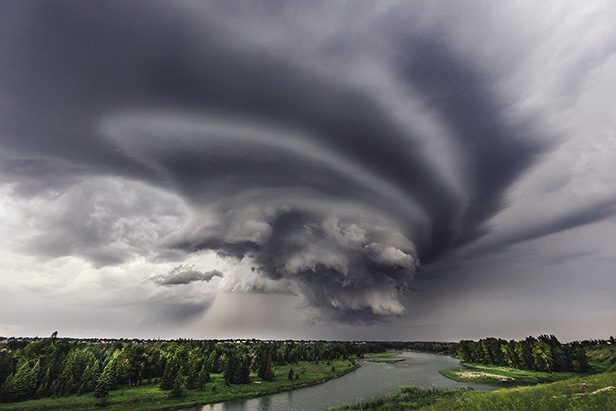
The unprecedented wildfire season that has impacted every region of the country over the past month is a stark reminder of the growing risk Canadians face from sudden and extreme weather events.
Ten years ago, it was catastrophic floods that captured national attention.
On June 20, 2013, Calgary experienced one of the worst natural disasters in Canadian history. A devastating flood forced close to 80,000 people to evacuate, and destroyed or damaged thousands of homes and businesses. Tragically, five people lost their lives.
Just a few weeks later, on July 8, 2013, two separate storm cells moved over the Greater Toronto Area and then stalled, causing record levels of rain. The resulting floods were the worst in the area since Hurricane Hazel struck in 1954.
While damage caused by fire has long been covered under most home insurance policies, overland flood insurance was not generally available at the time of the 2013 floods.
“In response to the flooding in 2013, the insurance industry responded to support their customers impacted by these events,” said Celyeste Power, President and CEO, Insurance Bureau of Canada (IBC). “In total, the two floods resulted in roughly $3.1 billion in claims paid out by Canada’s property and casualty insurers.”
Power said the sheer cost of the two disasters spurred a national conversation about the lack of financial protection from flooding that many Canadians face. Subsequently, insurers responded by designing Canada’s first overland model flood insurance product. This advisory optional flood endorsement became available just two years after the Calgary and Toronto floods.
Since the 2013 floods, a lot of progress has been made to ensure that Canadians are better financially protected from flooding.
To raise awareness of the growing risk of flooding across Canada, IBC spearheaded the advocacy for a National Action Plan on Flooding. It included a call for the federal government to create a National Flood Insurance Program to ensure that all homeowners, regardless of their risk, can access affordable flood insurance.
In the 2023 Budget, the federal government announced its intention to partner with provinces and territories to launch a low-cost flood insurance program for those at the highest risk of flooding.
“We hope this program can be up and running in two years,” said Power. “At a time of increasing risk from flood, Canadians at high risk deserve to have access to protection in a way they don’t right now.”
Power said establishing a National Flood Insurance Program has never been more important, as the frequency and severity of flooding are increasing. She noted that the 2021 flooding caused by atmospheric rivers in southern British Columbia highlights the ongoing protection gap that exists for properties that are located in known flood plains and considered too high of a risk for insurance companies to underwrite.
Since 2013, there have been 35 catastrophic flooding events across Canada in which insured losses exceeded $30 million per flood. Total insured losses from these events averaged close to $800 million annually over the last decade. Today, 30 insurers across the country operate in the flood insurance market and about 90% of homeowners can access it.



